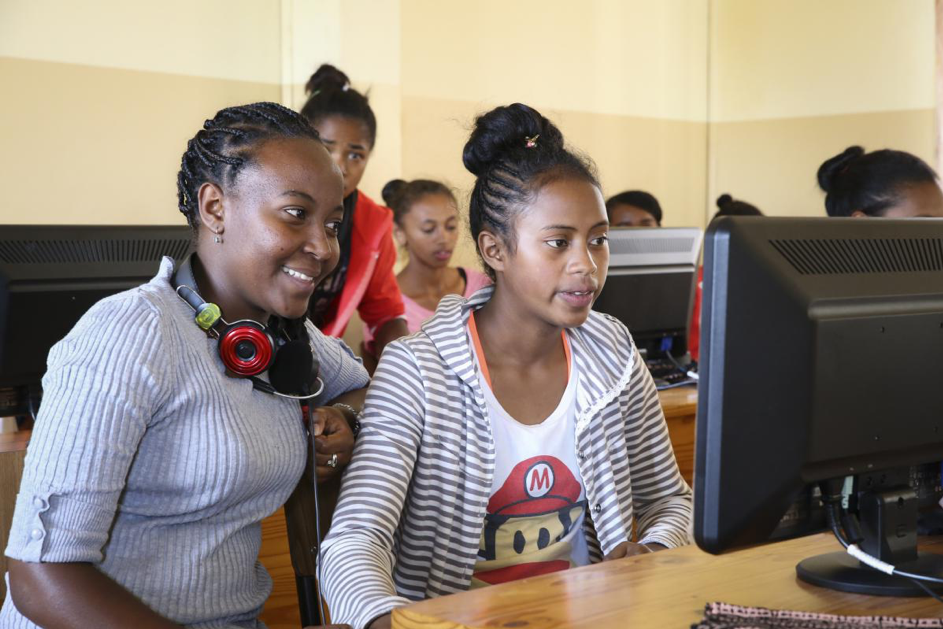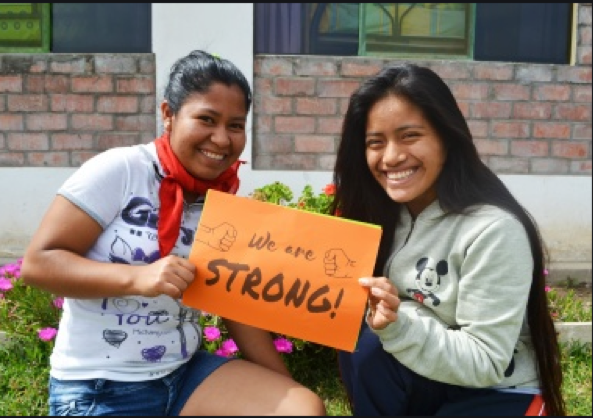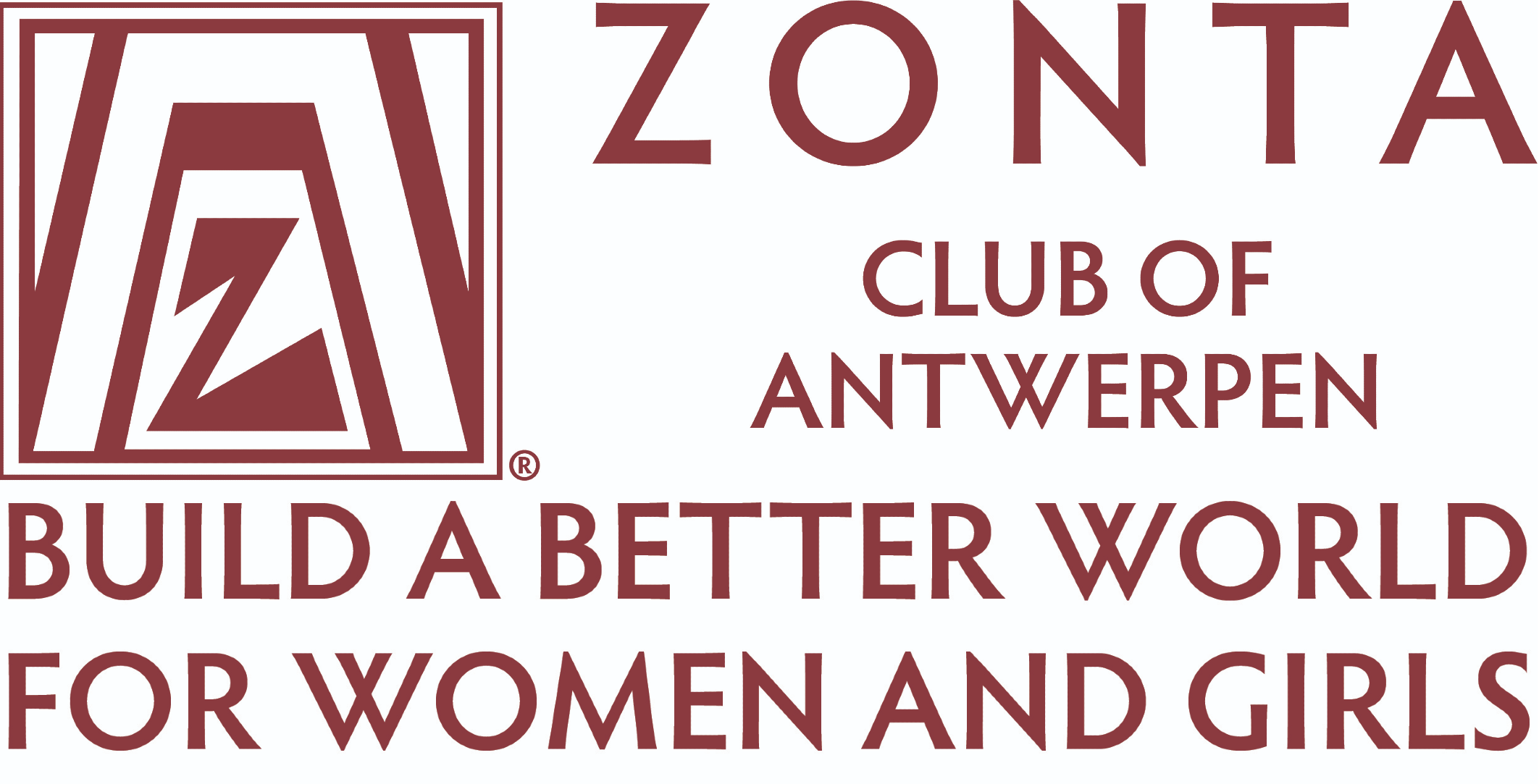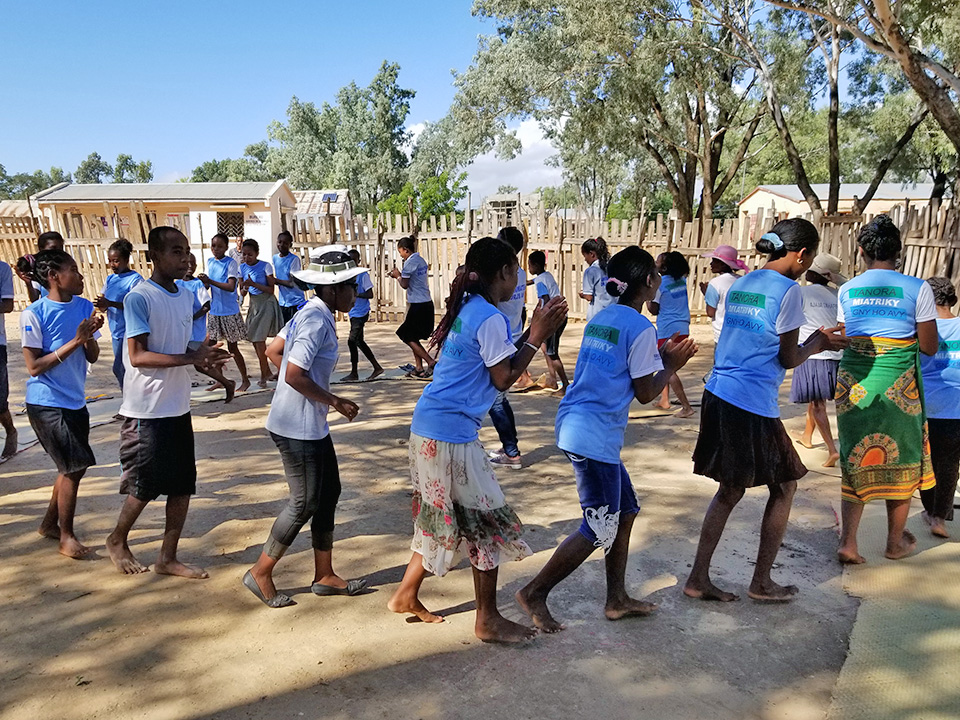Internationale projecten
De Zonta Foundation for Women beheert de fondsen voor beurzen en projecten, en werkt nauw samen met Unicef en UN Women.
“Philanthropy is not about the money. It’s about using whatever resources you have at your fingertips and applying them to improving the world.”
– Melinda Gates –
2020-2022
Voor dit biënnium staan er 4 projecten centraal
1
Global programme to end child marriage
Het beëindigen van kindhuwelijken; wij willen een einde maken aan deze schending van mensenrechten.
Global programme to end child marriage
Kindhuwelijken komen helaas nog altijd veel voor . Er zijn jaarlijks wereldwijd 12 miljoen meisjes onder de 18 jaar die gedwongen worden om te trouwen.
In samenwerking met UNFPA en UNICEF zet Zonta zich in om een einde maken aan deze wereldwijde schending van mensenrechten om zo kwetsbare meisjes te beschermen.
Strengthening Response to gender-based violence (GBV)
in Papua New Guinea & Timor-Leste
We zorgen ervoor dat deze vrouwen en meisjes een leven zonder geweld kunnen leiden in Papua New Guinea en Timor-Leste.
Strengthening Response to gender-based violence (GBV)
In Papua New Guinea & Timor-Leste
Zonta heeft 1.000.000 US dollar toegezegd aan het UNFPA programma in Papoea Nieuw Guinea en Timor Leste. Dit programma heeft als doel vrouwen en meisjes te helpen bij het voorkomen van ( sexueel ) partnergeweld, en vrouwen/meisjes die getroffen zijn door gendergerelateerd geweld toegang te geven tot professionele opvang en gezondheidsvoorzieningen.
2
2
Strengthening Response to gender-based violence (GBV)
in Papua New Guinea & Timor-Leste
We zorgen ervoor dat deze vrouwen en meisjes een leven zonder geweld kunnen leiden in Papua New Guinea en Timor-Leste.
Strengthening Response to gender-based violence (GBV)
In Papua New Guinea & Timor-Leste
Zonta heeft 1.000.000 US dollar toegezegd aan het UNFPA programma in Papoea Nieuw Guinea en Timor Leste. Dit programma heeft als doel vrouwen en meisjes te helpen bij het voorkomen van ( sexueel ) partner geweld, en vrouwen/meisjes die getroffen zijn door gendergerelateerd geweld toegang te geven tot professionele opvang en gezondheidsvoorzieningen.
3
Let us learn Madagascar !
‘Let Us Learn’ is een geïntegreerd onderwijsprogramma dat kansen creëert voor kwetsbare en uitgesloten kinderen/ meisjes, in Madagaskar om hun recht op onderwijs te realiseren in een veilige en beschermende omgeving.
In Madagaskar gaat één op de vier kinderen van 6–10 jaar niet naar school en één op drie kinderen van 11–14 jaar gaat niet naar de lagere middelbare school.

De specifieke doelstellingen zijn:
- Ervoor zorgen dat meer meisjes toegang hebben tot het onderwijs en op school blijven.
- Ervoor zorgen dat het onderwijssysteem van Madagaskar de capaciteit heeft om kwaliteitsonderwijs te bieden voor betere leerresultaten.
Adolescent Girls’ health & protection in Peru
Zonta zet zich mee in voor de bescherming en gezondheid van meisjes in Peru.
Adolescent Girls’ health & protection in Peru
Jonge Peruaanse vrouwen moeten de kans krijgen om op te komen voor hun rechten. Door hun zelfvertrouwen en hun autonomie te ontwikkelen zijn zij in staat om controle over hun leven en hun lichaam te krijgen. Ongelijkheden op basis van geslacht, leeftijd, geografische locatie, etniciteit en inkomen blijven spijtig genoeg bestaan voor veel Peruaanse adolescenten.

Specifieke doelstellingen zijn onder meer:
- Verbetering van de gezondheidssector bij het verstrekken van hoogwaardige, uitgebreide en gedifferentieerde zorg voor adolescenten, met de nadruk op geestelijke gezondheidszorg en geweldpreventie voor meisjes.
- Verbetering van de capaciteit van de beschermings- en onderwijssector om de gezondheid te bevorderen en alle soorten geweld op scholen, met name gender gerelateerd geweld, tijdig te voorkomen en aan te pakken.
4
4
Adolescent Girls’ health & protection in Peru
Zonta zet zich mee in voor de bescherming en gezondheid van meisjes in Peru.
Adolescent Girls’ health & protection in Peru
Jonge Peruaanse vrouwen moeten de kans krijgen om op te komen voor hun rechten. Door hun zelfvertrouwen en hun autonomie te ontwikkelen zijn zij in staat om controle over hun leven en hun lichaam te krijgen. Ongelijkheden op basis van geslacht, leeftijd, geografische locatie, etniciteit en inkomen blijven spijtig genoeg bestaan voor veel Peruaanse adolescenten.

Specifieke doelstellingen zijn onder meer:
- Verbetering van de gezondheidssector bij het verstrekken van hoogwaardige, uitgebreide en gedifferentieerde zorg voor adolescenten, met de nadruk op geestelijke gezondheidszorg en geweldpreventie voor meisjes.
- Verbetering van de capaciteit van de beschermings- en onderwijssector om de gezondheid te bevorderen en alle soorten geweld op scholen, met name gender gerelateerd geweld, tijdig te voorkomen en aan te pakken.

 “Access to appropriately vented pit latrines is a big upgrade,” was one of Dr. Tamara Hagen’s conclusions on Day 1 of the Zonta field visit to Let Us Learn sites in Madagascar. Together with our UNICEF USA partners, a Zonta team of four drove to Amboasary in the south of the country. The group got their first glimpses of the Let Us Learn program in a village where new school classrooms and a WASH (water, sanitation and hygiene) facility were built with the support of Zonta International.
“Access to appropriately vented pit latrines is a big upgrade,” was one of Dr. Tamara Hagen’s conclusions on Day 1 of the Zonta field visit to Let Us Learn sites in Madagascar. Together with our UNICEF USA partners, a Zonta team of four drove to Amboasary in the south of the country. The group got their first glimpses of the Let Us Learn program in a village where new school classrooms and a WASH (water, sanitation and hygiene) facility were built with the support of Zonta International.






